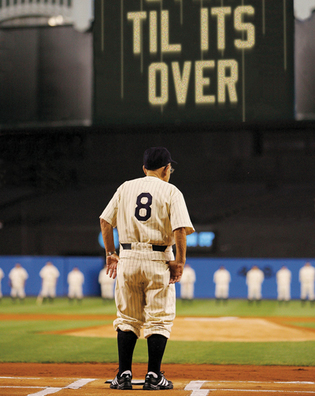 loading
loading
Arts & CultureYou can quote them
Modern proverbs. Yale law librarian Fred R. Shapiro is editor of the <i>Yale Book of Quotations</i>.
 Photo illustration: John Paul ChirdonView full image
Advertising slogans, folk songs, nursery rhymes, proverbs, and television catchphrases are not usually treated as “quotations,” but in many ways they deserve to be. Of all these special categories, the one I find most interesting is proverbs. Proverbs have profound psychological roots and psychological power, and they unite human beings with a kind of lingua franca communicating unsophisticated but widely appreciated wisdom. Yale University Press’s newly published Dictionary of Modern Proverbs, which I coedited, defines them as statements “formulaic though variable in their wording” that “express general observations, assertions, or propositions.” People often assume that all proverbs are traditional (“A stitch in time saves nine”), and find the notion of a recently coined proverb oxymoronic. The great majority of entries in the standard Oxford Dictionary of Proverbs are centuries old. Yet our proverb-creating capability did not die in the nineteenth century. Contemporary culture is prolific in minting expressions that clearly function as proverbs. The DMP collects more than 1,400 proverbs whose earliest traceable occurrences are post-1900. A few examples: “Garbage in, garbage out,” “A woman without a man is like a fish without a bicycle,” “It takes a village to raise a child,” and “Shit happens.” The DMP’s other major contribution is its research. I included proverbs (and the other categories named above) in the Yale Book of Quotations and presented much novel research. But in a fair number of cases the DMP surpasses the YBQ—uncovering early citations and disproving accepted origin stories. “If you can’t stand the heat, get out of the kitchen” is typically attributed to Harry S. Truman. The YBQ gave as its earliest citation a 1952 Time article, and quoted a 1952 speech in which Truman called the line “a saying that I used to hear from my old friend and colleague on the Jackson County Court.” The DMP has chapter and verse for that judicial provenance. In 1931 the Independence (Missouri) Examiner quoted Jackson County judge E. I. “Buck” Purcell: “But if a man can’t stand the heat, he ought to stay out of the kitchen.” As much as Truman is associated with heat in kitchens, Yogi Berra is linked to “It’s not over till it’s over.” The YBQ pushed the documentation of this one back to 1977, and also quoted Berra’s later explanation: “That was my answer to a reporter when I was managing the New York Mets in July 1973. We were about nine games out of first place. We went on to win the division.” The DMP demolishes Yogi’s claim to coinage: in 1921, a fraternity newsletter (itself crediting the Indianapolis News) described a game in which Rotary came from behind to beat Kiwanis—and added, “All of which goes to prove that a ball game’s never over until it’s over.” Modern proverbs are to traditional proverbs what urban legends are to traditional folktales. The DMP seeks to reveal the newer folk-speech, much as Jan Harold Brunvand shed light on the new folklore in bestselling books like The Vanishing Hitchhiker. Yet the DMP also shows that many recent adages are not as recent as one might think—exemplifying that very old proverb, “There is nothing new under the sun.”
The comment period has expired.
|
|